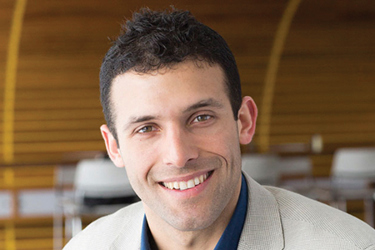Where Are They Now? SQZ Biotech

By Ben Comer, Chief Editor, Life Science Leader

Then: In the March 2019 issue of Life Science Leader, SQZ Biotech cofounder and CEO Armon Sharei, Ph.D., reflected on his initial attraction to an MIT project led by Professor Klavs Jensen: delivering materials into cells using a microfluidic gun. “Imagine a miniaturized, high-powered squirt gun designed to fire things into cells as they float by,” wrote Sharei. “If you can put anything you want into a cell, you can use these biological machines that are the fundamental units of life to tackle the most debilitating diseases, potentially in a much safer and more effective way.” Jensen and post-doc Andrea Adamo accepted Sharei onto the MIT project team, and biotech engineering luminary Bob Langer signed on as Sharei’s Ph.D. co-advisor. Four years later, Sharei had earned a Ph.D. in chemical engineering, and was a cofounder of SQZ Biotech, named for the company’s technology that “gently squeezes” cells, creating a temporary porousness in the cell membrane, and a chance to deliver materials directly into the cytoplasm.
That novel science attracted Roche’s interest in 2015, and the two companies agreed to an initial collaboration to jointly develop therapies derived from SQZ Biotech’s peripheral blood mononuclear cells. In 2018, Roche and SQZ expanded the collaboration, with plans to jointly develop and commercialize products based on SQZ’s antigen presenting cells for oncology indications. That expanded collaboration promised milestone payments worth over $1 billion, including $125 million in up-front payments and near-term milestones. By the time Sharei’s article was published in Life Science Leader in 2019, the company had raised over $100 million in equity financing, in addition to the Roche partnership. In 2020, Sharei took SQZ Biotech public with a $71 million IPO, and channeled the funds into its pipeline of novel cell therapies.
Being the founder and CEO of SQZ Biotech was Sharei’s first full-time job, and it was “all-consuming,” noted Sharei in the 2019 article. “People often applaud entrepreneurship, lionize its leaders, and paint it as a glamorous adventure,” he wrote. In reality, building and leading a company is difficult, and relentless. “You see your family and friends much less often, and you will spend a lot of time doing things you don’t enjoy,” wrote Sharei. “While I ultimately find the role very fulfilling, only certain people in certain situations will find it worth the trouble.”
Now: By late 2021, SQZ Biotech’s stock had begun a slide that would ultimately end with the NYSE delisting the company in July of 2023, due to its inability over 30 consecutive trading days to maintain an average global market cap over $15 million. By then, the company’s board had already announced a “strategic prioritization,” which included the ouster of Sharei as CEO in November of 2022. Shortly after the NYSE delisting, the final domino fell: Roche backed out of its collaboration with SQZ, opting not to exercise its option, leaving the company without the funds it needed to move forward. On February 29, 2024, the SQZ board voted to sell off the company’s remaining assets to Stemcell Technologies, and to shut down operations. On LinkedIn, Sharei voiced his support for the $11.8 million sale, “not because I think it is a productive financial outcome — SQZ has lost 99% of its value — but because Stemcell’s acquisition of the technology will give its potential a chance to live on.”
SQZ didn’t work out, but Sharei still evidently finds company creation and leadership worth the trouble. Last December, he launched Portal Biotechnologies, and in March, the new company received $5 million in pre-seed funding. Portal’s goal is to develop “a universal cell engineering platform” based on a “proprietary mechanical delivery system capable of delivering many different types of cargo to a broad range of cell types.” The company has “ongoing partnerships with multiple pharmaceutical companies and prominent academic institutions as part of its beta program for early adopters,” according to its website, and is positioning itself as a service and solutions provider of enabling technology for research and clinical applications.
